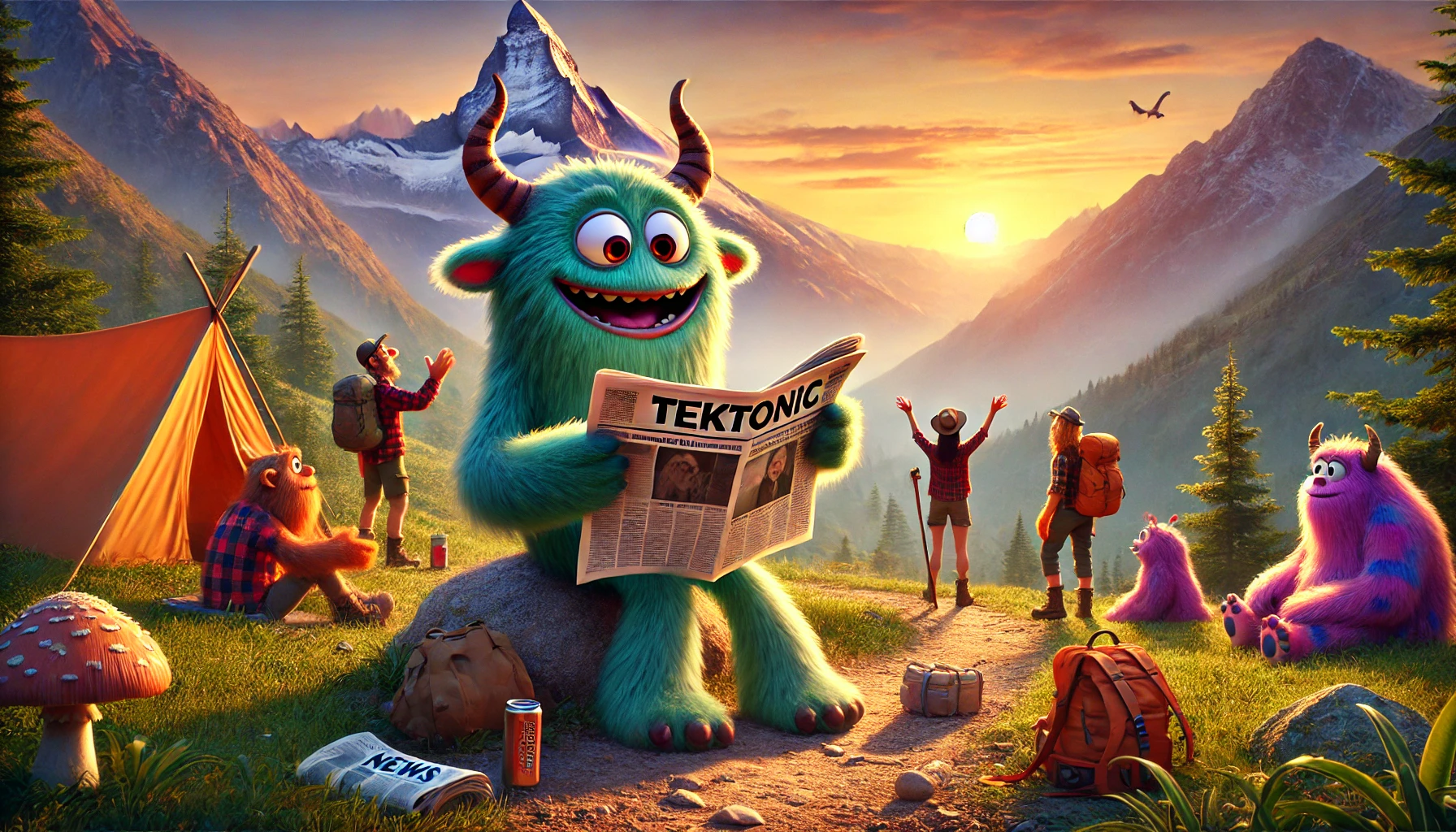Just an amazing week of Tech and AI news. This week we discovered how OpenAI’s new initiatives, such as GPT-4o Advanced Voice and GPT-4o Mini, are setting new standards in AI capabilities. We also heard stories exposing the complex ethical landscape as companies navigate data privacy concerns and regulatory hurdles in the US and EU. The healthcare sector continues to benefit from AI innovations, with tools predicting Alzheimer’s progression and enhancing medical imaging. Meanwhile, political maneuvers and legislative actions highlight the increasing significance of AI in governance and defense. Join us as we explore these developments and their profound implications for the future of AI and technology.
If you follow traditional media and their interviews with CEOs and CTOs, you might think we are falling into the AI Gartner Trough of Disillusionment. However, observing the trees rather than the forest reveals so much more. We learned that 33% of all data sent to AI companies are regulated personal data, revealing that companies are not controlling data being shared with AI companies. We also learned that the more people use GenAI, the more they believe it is conscious. We learned that people using robotic exoskeletons are less likely to be injured on the job compared to their unequipped coworkers. Furthermore, we learned that 60% of people would prefer to be “ruled” by an AI over a human. Speaking of leaders, Trump announced he would relax regulatory oversight of AI if he were elected president. We also learned Q* is real and codenamed Strawberry, a rumor we heard during the infamous OpenAI ousting last year.
OpenAI’s announcement of the GPT-4o Advanced Voice has generated much anticipation (and controversy), so CEO Sam Altman confirmed the alpha release to select users. This development promises to enhance user experiences by offering advanced voice capabilities. OpenAI continued to make headlines with the launch of GPT-4o Mini, a faster and more cost-effective version of its flagship model. It is set to replace GPT-3.5 Turbo in the ChatGPT interface. OpenAI also released a corporate compliance tool capable of monitoring employees’ usage of ChatGPT.
However, not all news was positive. Microsoft faced a significant cloud outage, disrupting services globally and causing airlines to cancel flights.
In a move that sparked considerable debate, Meta decided to halt the release of its advanced AI model in the EU due to unpredictable privacy regulations. The tech giant’s decision reflects the growing tension between innovation and regulatory compliance.
Amidst these challenges, impressive strides were also made in AI innovation. Mistral AI and Nvidia unveiled the Mistral NeMo 12B, a versatile language model for enterprise applications such as multilingual tasks and coding.
In a surprising twist, a study revealed that people often prefer AI decision-making over human judgment, sparking discussions about the future role of AI in governance. This sentiment aligns with ongoing conversations about AI-client privilege, similar to confidentiality with lawyers or doctors, as proposed by Sam Altman.
Turning to tech advancements, Microsoft introduced SpreadsheetLLM, an AI tool designed to enhance spreadsheet functionalities.
Meanwhile, the field of transportation saw a revolutionary breakthrough with the creation of an algorithm by researchers at ETH Zurich. This algorithm can calculate the maximum transport flow at the lowest cost and fastest speed for various networks. We also learned of an innovative MRI-like imaging modality for your car finding repair issues without costly human inspections.
In the legal arena, a class-action lawsuit against Patagonia for using AI-based software to analyze customer calls without consent. Additionally, US lawmakers introduced the ‘COPIED Act’ to combat the rise of harmful deep fakes and protect artists.
The cybersecurity landscape remained volatile, with reports of numerous vulnerabilities in GitHub workflows and the shutdown of Russan-based Kaspersky’s US operations due to sanctions.
In the education sector, OpenAI Co-Founder Andrej Karpathy launched Eureka Labs, an AI-powered education startup aimed at overcoming traditional barriers with virtual teaching assistants, hoping to reverse the trend that 41% of global parents think that traditional education will not secure kids’ future just as AI beats students in tests. This initiative promises to revolutionize education by providing personalized learning experiences to students worldwide. Complementing this, Coursera’s research revealed that millennial men are most likely to enroll in generative AI upskilling courses, reflecting a growing demand for AI literacy in the workforce. Moreover, Anthology’s latest release of the Blackboard LMS with new AI Tools for course designers and students emphasizes AI literacy, instructor efficiency, and student success, setting a new standard in EdTech.
Turning to politics, the House of Representatives requested a report from the Federal Energy Regulatory Commission on AI, highlighting concerns over the environmental impact of tech companies. In a controversial move, Trump allies drafted an AI order to launch “Manhattan Projects” for defense, aiming to reduce regulations and favor Silicon Valley investors. Meanwhile, a third of US military could be robotic by 2039.
Business advancements were equally significant. Verve Motion’s pioneering study on wearable robotics demonstrated the potential of soft exo-suits to boost safety and efficiency in industrial environments. Despite initial excitement, HR tech company Lattice faced backlash and scrapped plans to give AI agents workers equivalency, underscoring the complex ethical considerations of integrating AI into the workforce. Additionally, a Yellow.ai study revealed growing confidence in AI-first automation among North American customer service executives, indicating a shift towards more automated customer service solutions and one-third of asset managers actively using AI.
In robotics, the world’s fastest brick-laying robot, Hadrian X, made its way to the US, showcasing the potential for automation to revolutionize the construction industry. Chef Robotics launched an AI-powered food robot to address the global food labor shortage and boost production efficiency.
The media and entertainment sector also saw notable developments. Companies like Getty began developing AI models with their data to avoid legal issues, highlighting the ongoing push to create AI with licensed content. McDonald’s launched the AI-powered “BootPursuit Challenge,” using generative AI to engage customers in a novel marketing campaign. In a more controversial vein, revelations surfaced that Apple, Nvidia, and Anthropic used thousands of YouTube videos without consent to train their AI, sparking debates about data usage and consent in AI development.
Healthcare innovations continued to make headlines. A new AI tool predicting Alzheimer’s disease progression with over 80% accuracy offers hope for early diagnosis and intervention. Subtle Medical received FDA clearance for SubtleSYNTH™, an AI-powered synthetic imaging software, marking a significant advancement in medical imaging technology. Medtronic’s launch of an AI platform for robotic surgery and Huma’s $80 million funding to develop a cloud platform for digital health initiatives underscore the growing integration of AI in healthcare.
Finally, in the startup world, Google is reportedly in talks with cybersecurity startup Wiz, potentially setting the stage for its largest acquisition ever. DreamBig closed a $75 million Series B funding round, aiming to democratize AI inference and training solutions with its open MARS Chiplet Platform.
That is it. Stay tuned for more news next week. I APPRECIATE ALL THE READERS. Help spread the word. I put these newsletters together so productive humans like you can stay on top of the latest AI stories shaping our world.
If you like these weekly tech news reports, subscribe to get notified of new editions and updates. For daily updates, you can check out our news page. Or, for a more in-depth analysis of the week’s news, sign up to receive our free weekly newsletter located to the right of the daily news or follow me on Twitter or YouTube.



